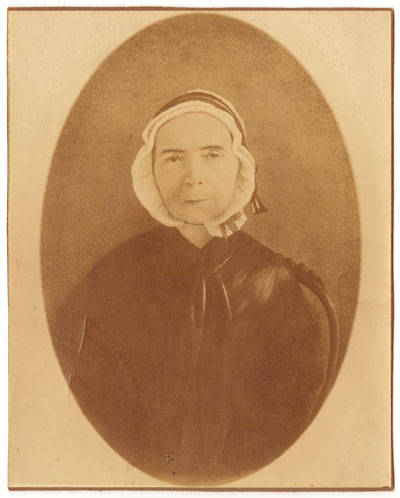Reflections of a Civil War Christmas

Earlier this week, I was wrapping what few presents we planned to give this year to our friends and family. I always have music playing in the background while I work, mostly to fill the silence. On shuffle, my playlist roamed from classic rock to ‘40s swing to ‘90s pop and everything in between. Sprinkled throughout my eclectic musical interests, are songs and ballads from the Civil War. As I was in the midst of folding, creasing, cutting, and taping wrapping paper, the solemn melody of “Somebody’s Darling” wafted through my living room. Out of habit, I began to sing, as I always did when appropriate. The song, sad and somber, eloquently describes the features of a young soldier who lays “still and cold” with his “blue eyes so dim.” I’ve loved the song for its moving verses, describing not just the beauty that can sometimes be found in death, but the biggest question the living are left with: “Who’ll tell his Mother where her boy died?” Such a question was left to the officers, the chaplain, a nurse, or a doctor that may have treated him in the final hours or whoever might have crossed “his white hands on his broad bosom.”[1] The song was originally a poem written by Marie Ravenel de LaCoste of Savannah, Georgia, after the death of her fiancé, and put to music by John Hill Hewitt in 1864.
I stopped for a moment and realized how the lyrics contradicted what I was doing. I was preparing for a festive, joyful time of the year that I’ve always spent with loved ones, taking for granted that there would be many more Christmases and holidays to come. Yet, everyone has a last Christmas with someone they lost. Perhaps during these uncertain times, more than ever, many are missing someone dear to them this season. It can be a comfort to know that we are not alone. In the Civil War, over 700,000 soldiers left families in mourning during the holidays. It not only made me grateful, but contemplative as I continued wrapping and the song faded into “The Best Is Yet To Come” by Frank Sinatra.
Flipping through some of the civilian diaries in my library, I found another instance in 1864 when Christmas was filled with mixed emotions. Judith McGuire’s book, Diary of a Southern Refugee during the War, details the ups and downs of war from the point of view of an ardent Confederate woman from Alexandria, Virginia, who is forced to flee with her husband to Richmond. Displaced from home, she chronicled her daily life, as well as the conflict, adding her own flavorful prejudice toward Northerners and jubilant celebrations of Southern victories. Practically the only Christmas entry in her published diary goes as follows:
A Christmas present has just been handed me from my sweet young friend S.W.- a box filled with all manner of working materials, which are now so scarce and expensive, with a beautiful mat for my toilet at the bottom of it. Christmas will come on the Sabbath. The “Colonel” is gone, but J. and C. will take their usually Sunday dinner, and I have gotten up a little dessert, because Christmas would not be Christmas without something better than usual; but it is a sad season to me. On last Christmas-day our dear R.T.C. was buried; and yesterday I saw my sweet young cousin E.M. die, and to-morrow expect to attend her funeral. Full of brightness and animation, full of Christian hope and charity, she was the life of her father’s house, the solace and comfort of her already afflicted mother, one of the many mothers whose first-born has fallen a sacrifice of war. This interesting girl, with scarcely a warning, has passed into heaven, leaving a blank in the hearts of her family never to be filled.[2]

The day after, she gave a little more detail of how the day progressed. She described how the holiday season did little to brighten the spirits of the Southern congregation, as the loss of Savannah to General William T. Sherman, the failure to take Nashville, and The Army of the Potomac sieging Petersburg not too far away was on many minds that morning in church. She lamented how a turkey cost between $50 to $100, forcing them to settle for “roast-beef and the various dishes which Confederate times have made us believe are tolerable substitutes for the viands of better days.” Yet, they were able to treat themselves to some sweet ginger cakes, saying “Nothing but the well-ascertained fact that Christmas comes but once a year could make such extravagance at all excusable.”[3]
In the midst of tragedy, loss, and mourning, Judith and her party made a real effort to enjoy themselves that Christmas as the world to which they had been so accustomed began to crumble around their ears. They did it for the spirit of the holidays, which promised the hope of better days to come.

While I know that this time of year may also be difficult for some, I hope that readers of the ECW blog have a merry and joyful holiday season, no matter if it’s filled with twinkling lights and jolly laughter or solemn reflections of seasons past.
Endnotes
[1] Abbott, J. B. Somebody’s Darling. 1865. Notated Music. https://www.loc.gov/item/ihas.200000806/.
[2] Judith W. McGuire, Diary of a Southern Refugee during the War by a Lady of Virginia, University of Nebraska Press, 1995, p. 323
[3] Ibid, p. 324